Online discussion on the impact of COVID-19 on media freedom
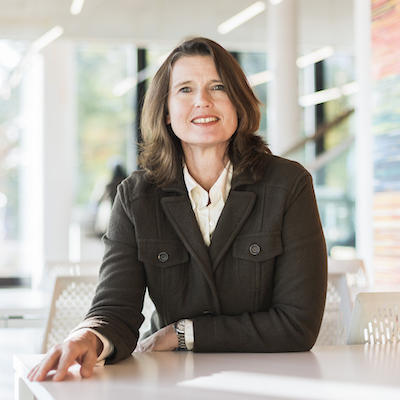
Alexandra Borchardt
Head of Digital Journalism Fellowship, Hamburg Media School
Alexandra Borchardt is a senior journalist, book author, journalism professor and media adviser.
She works as a consultant for the World Association of News Publishers (WAN-IFRA) and Hamburg Media School, where she heads the Digital Journalism Fellowship. She is also a Senior Research Associate at the Reuters Institute for the Study of Journalism at the University of Oxford, where she served as Director of Leadership Programmes. Prior to this she was managing editor of Süddeutsche Zeitung (SZ), Germany’s leading quality daily.
Alexandra is a journalism professor and programme co-manager at the University of the Arts in Berlin and teaches “Leadership and Strategy in the 21st Century” at TU Munich. She gives lectures and keynotes on digitalisation and the media and regularly publishes commentaries and essays, for example with Project Syndicate, European Journalism Observatory and a German magazine for digital life. She is the author of Mehr Wahrheit wagen – Warum die Demokratie einen starken Journalismus braucht (Dare more truth – Why democracy needs strong journalism), Duden Verlag, 2020, and Mensch 4.0 – Frei bleiben in einer digitalen Welt (Freedom in a digital world), Random House, 2018.
At the Council of Europe she is a member of the Committee of Experts on Freedom of Expression and Digital Technologies and prior to that served as vice chair in the Committee of Experts on Quality Journalism in the Digital Age. She is also a member of the Committee for Editorial Independence at Czech publishing house Economia.
At SZ she held several functions in the politics and business sections. She was also founding editor of Süddeutsche’s ‘Plan W’, an award-winning quarterly magazine for women and business. In her reporting she has focused on internet and democracy and the future of work. In 2015 she published Das Internet zwischen Diktatur und Anarchie: Zehn Thesen zur Demokratisierung der digitalen Welt (The Internet between Dictatorship and Anarchy: Ten Assertions about Democracy in the Digital World), Süddeutsche Zeitung Edition Streitschrift. Before joining SZ she worked for Financial Times Deutschland and Deutsche Presse-Agentur.
Alexandra holds a Ph.D. in Political Science from Tulane University, New Orleans (1994), and in 2013 completed a Programme for Management Development at IESE Business School, Barcelona.
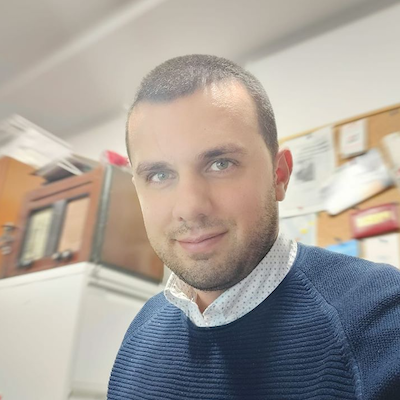
Deniz Sulejman
Communications Officer at the Association of Journalists of Macedonia
Project Coordinator at the Association of Journalists of Macedonia
Deniz is a young and dynamic media professional, with a considerable track record and hand-on-work experience in Project Management and communications, gained through working for and with a variety of non-governmental organisations and private actors, and international donors’ community in North Macedonia, most of whom are involved in the process of development.
Lately he has been involved in managing the communications and projects of the Association of Journalists of Macedonia, funded by different international donors supporting the freedom of media and democratization processes in the country. Deniz has helped in preparation and organization of more than 100 different trainings during the past five years. Also, he has been a contributor in more than five publications and manuals on media related topics in the past three years. Deniz holds a bachelor degree in journalism studies at the University of St.Cyril and Methodius in Skopje.
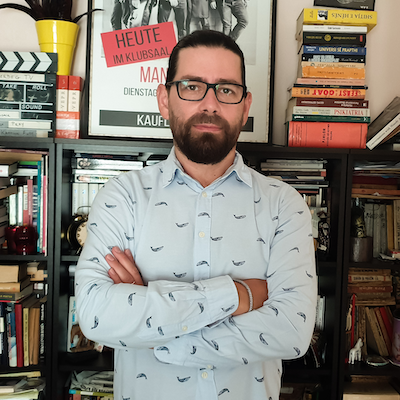
Koloreto Cukali
Executive Director of the Albanian Media Council
Koloreto Cukali is the head of Albanian Media Council.
Born in Tirana, Kolo has worked since 2000 in various media: radio, TV, print and online. From 12 years he is a frequent columnist for various daily newspapers and new media. He is also a filmmaker and since 2017 serves as the Head of Albanian Media Council (AMC), an organisation of journalists whose aim is to establish ethical standards and build mechanisms of self-regulation in the country. AMC is also championing freedom of expression and media rights, leading the journalists and civil society coalition against the censorship laws introduced by the government in December 2018.
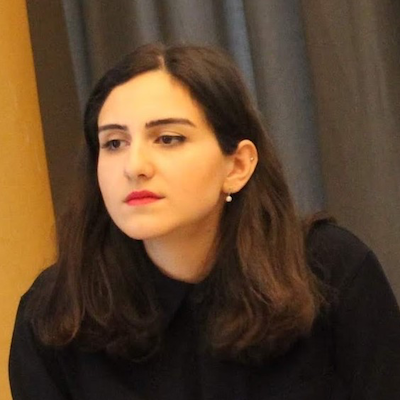
Mariam Gogosashvili
Executive Director of the Charter of Journalistic Ethics of Georgia
Mariam Gogosashvili is the Executive director of the Georgian Charter of Journalistic Ethics since March 2020.
Prior to this, Mariam worked at Georgia Young Lawyers’ Association (GYLA) as a media law project coordinator. In 2012-2013, she was a lawyer at the Media Legal Defense Center in the same organization. In 2013-2017, she headed the legal department of "Stereo +" LTD.
Mariam Gogosashvili is the author of numerous research papers in the field of media law.
She holds Master's degrees in law and international relations.
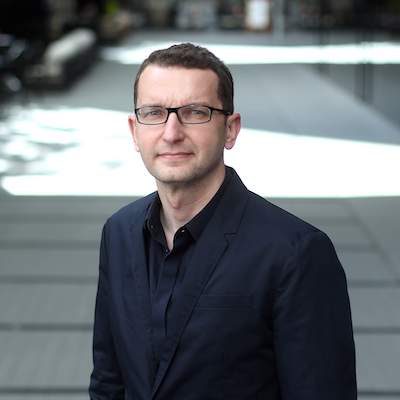
Marko Milosavljević
Associate Professor, Faculty of Social Sciences, Ljubljana University
Marko Milosavljevič is an Associate Professor, ph.d., at the Department of Journalism at Faculty of Social Sciences at University of Ljubljana, Slovenia. He is a member of the Core Experts Group for Media and Culture, advising European Commission, and the chair of Communications Law and Policy section of European Communication Research and Education Association (ECREA). In 2020 he has been elected to the Committee of experts on media environment and reform (MSI-REF) at the Council of Europe.
He is a member of Horizon2020 project EMBEDDIA, researching artificial intelligence in the media and newsrooms, where he takes the position of dissemination manager. His research of media, journalism, media policy and digital issues in Slovenia and EU was published in books and scientific journals in United States, Germany, France, United Kingdom, Norway, Austria, Bulgaria, Croatia and Netherlands.
He is a co-author of the book »Media Policy in Slovenia in the 1990s – Regulation, privatization, concentration and commercialization of the media« and the author of Television across Europe: Regulation, Policy and Independence (2005-2006) for Slovenia, as part of the Open Society Institute project in Budapest and the EUMAP and Network Media Program.
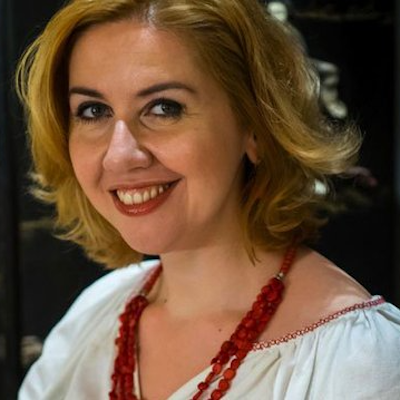
Oksana Romaniuk
Director of the Institute of Mass Information and representative of the Reporters Without Borders in Ukraine
Oksana Romaniuk is the Executive Director of the Kyiv-based Institute of Mass Information (IMI) since August 2013. The IMI is a leading Ukrainian NGO that researches mass information in modern society. Its objectives include defending freedom of speech, supporting Ukrainian mass media, training Ukrainian journalists, drafting and lobbying media-reforms, and monitoring the contents and professional standards in media.
Prior to leading the IMI, Ms. Romaniuk worked at the UNIAN news agency, where she founded its English- language service and served as a journalist and editor of international news desk.
Ms. Romaniuk is a member of the Commission of Journalist Ethics of Ukraine, and is the Ukraine representative of Reporters Without Borders.
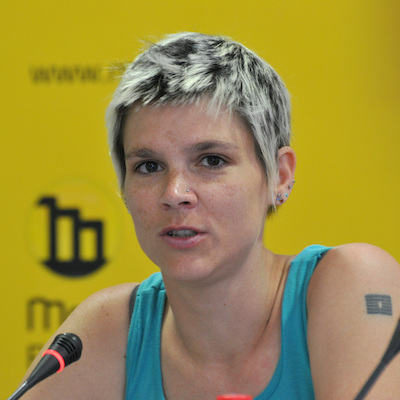
Maja Vasić-Nikolić
Project Manager, Independent Journalists´ Association of Serbia
Maja Vasić-Nikolić is the Project Manager at the Independent Journalists’ Association of Serbia.
From 2001 to 2003 Maja lived in the UK and worked for Brook Lapping Productions as an archive assistant/researcher on an award-winning series ‘The Fall of Milosevic’. Maja spent the next couple of years freelancing as a researcher, teacher and manager in the UK before returning to Serbia in 2006 to take the post of a project manager with the Independent Journalists Association of Serbia.
During the last five years she has been deeply involved in development, fundraising and implementation of a regional project focused on strengthening capacities of journalists’ associations of the Western Balkans to be effective advocates for media freedoms and safety of journalists. Working closely with researchers, she monitors and reports about current trends and developments regarding these topics in Serbia and the region.
Media in times of crisis play an essential role and have a particular responsibility to provide accurate and reliable information to the public – such information are crucial for our health.
This is reflected in the increased consumption of news from established media sources, as the public is again placing trust in the explanatory and reporting power of quality journalism.
However, as journalists strive to adapt their activities to the health crisis, new challenges are amplifying the pre-existing weaknesses of the media sector and reinforcing concerns for media freedom.
The online discussion provides an opportunity to share experience among journalists, media professionals, researchers and civil society and discuss the effects of COVID-19 on:
- media reporting
- public discourse
- sustainability of the media sector
- restrictions on freedom of expression and media freedom
The discussion aims to deliver an overview of challenges identified in the Council of Europe member states, explore possible solutions to which the international community and the Council of Europe could give its backing, and present valuable initiatives that can be replicated across the continent.

"Everyone has the right to freedom of expression"
Art. 10 European Convention on Human Rights


